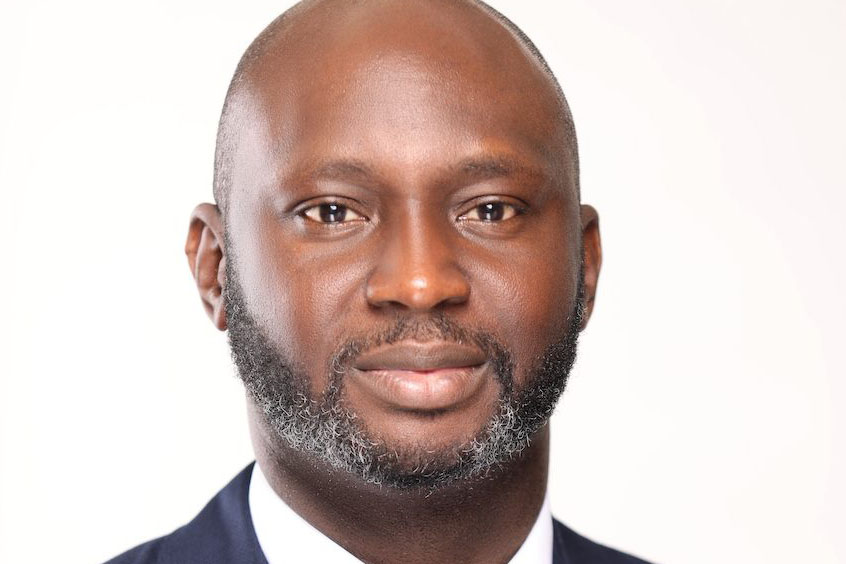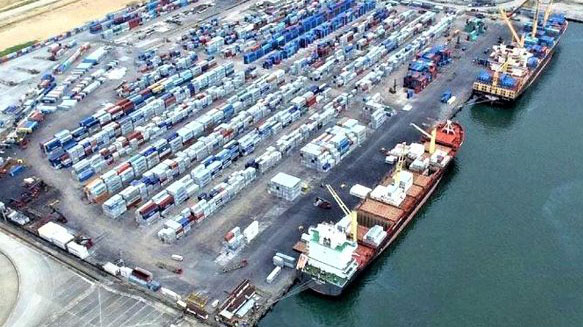
Ayodeji Balogun is the Chief Executive Officer of AFEX Commodities Exchange. The commodity trader, farmer and entrepreneur speaks to The Guardian in this interview on food security in Africa and how his company is working with smallholder farmers to help Africa feed itself.
Recently, your company, AFEX, was quoted as saying “we are crazy enough to think we can help Africa feed itself.” What inspired this ambitious vision, and how can Africa feed itself?
We think of agriculture as having great potential for creating opportunities for young people in Africa and as necessary to feed this vast population/market on the continent. With this, however, comes the realization that if we cannot feed ourselves, we are perpetually dependent on the rest of the world. So being able to feed ourselves is both a moral and an economic imperative for us as a continent. As a person who grew and spent his career around the commodities market and food systems, I want to be able to look at myself and say ‘I did my fair share. I contributed immensely to enabling Africa to harness her youth bloom to feed our continent.’ I would love AFEX in this situation to have been an orchestrator of that African Green/Food Revolution and to have been a critical player in making it a reality. At AFEX, we are obsessed with food security, inclusive agriculture, and every other tool you need to make it work. Be it technology or finance or human capital that you need to make that happen.
You have been an advocate for food security in Africa over the years; what personal experiences have motivated you to champion this cause?
I grew up in a rural city in Nigeria, Ijebu-ode in Ogun State to be precise. My dad was a farmer. He owned a plantation. My siblings and I would visit his farm while growing up. We spent significant holidays there. We saw the poultry, the birds, the fishes, and that was the attraction to agriculture for me. More importantly, as a teenager growing up into a young adult, trading was part of my everyday life. So I understand the entire value chain in a very experiential way. Today, when I look at a plate of food, it’s not just a meal; it is the history that came behind it. The stories and the effort of everybody who has spent six to nine months to make that crop ready, move it across the country, and get it to the table are always evident. This is the kind of connection I have with food.
From your perspective, what challenges are likely to impede the attainment of food security in Africa? And what are your recommendations?
The President of Africa Development Bank [AfDB], Akinwumi Adesina, always says that agriculture is business and is not development. For so long, we have taken agriculture as a means of poverty eradication, and the result of that approach to agriculture has been creating less poor farmers. The underlying thing still is that they are poor farmers. We have not created wealthy farmers as a continent over the last three/four decades. The last time we made wealthy farmers was in the early 80s when we started seeing the continent’s entire market infrastructure collapse. Three decades after that, all farmers have remained poor. If you look at our production of food per capita, it has declined significantly. We have produced more people than the food we will use to feed them. Our value creation in agriculture has declined because we had more food processed in decades past than we do today. This is a multiplier effect that has made the sector to remain almost the poverty centre. It is nearly an ill fate to be born by a smallholder farmer on the continent because immediately opportunities are not available for you.
In my view, three things are critical in turning this around and creating an efficient and sustainable food system in the continent.
First is talent. We need to close the knowledge gap. Second, we need capital. We need to attract capital for the sector and not at the high-end, sort of large, macro-level, or big conglomerate. We need to ensure that every smallholder farmer has access to credit to buy the input he needs, improving his productivity.
The third part is that we need efficient market systems that ensure the farmer is not exposed to the price volatility or the risk of not selling the commodities produced. The approach to solving these problems has been taking one or two or any of these three things and creating solutions in isolation, and that approach does not create a systemic change. The continent needs systemic changes that simultaneously address the three things, bringing prosperity to players in this sector.
Another thought I have is a need to move away from a complete focus on smallholder farmers as a continent. We also need what I call mid-sized commercial farming; farms between 30 to 50 hectares that are effectively cultivated and connected in an ecosystem that supports them.
These are the kind of farms that will grow into African gazelles, fast-growing SMEs, and then grow into national champions in a decade.
What role will technology play in the achievement of food security in Africa?
The biggest challenge we face as a generation centers around climate change and how we can ensure that the weather patterns are predictable, considering that almost all our food production is the rain-fed, meaning we need nature. Technology helps us to be able to manage this better. It also allows us to create crops that can deal with climate change and availability a lot more. We can get cloud data, weather patterns, and things like that and distill it into information that can help farmers know when and how to produce and what crop seed uses one year to the other. When you look at trading and efficiencies, you see the capacity to unlock capital for production, trade, and post-harvest processing. Technology will also play a leading role in converting the financial capital with commodities and the transmission of both. And these are things and opportunities that are left for players to tap.
The other part is the data. We at AFEX see data as an infrastructure for the future. The way we think about Capex’s around buildings and warehouses and balance sheet, we feel data is also the balance sheet item that in five years the players with the most extensive data will be the most competitive in the space.
Technology allows you to gather data and analyze it a lot more efficiently to create knowledge and insight.
The Tony Elumelu Foundation Entrepreneurship Programme is known to be the most extensive mentorship program for African entrepreneurs.
As one of the mentors, what role would you say mentorship will play in Africa’s entrepreneurship development?
I am delighted to be part of the Tony Elumelu Foundation and to have taken part in the journey of creating the Tony Elumelu entrepreneurship program. It is a program that has set out to empower, finance and connect over 10,000 African early-stage businesses.
Interestingly a considerable part of that number is agric businesses or businesses around the food value chain. Mentorship is a core part of our DNA as Africans, and will be useful indeed in raising the next generation of African entrepreneurs. We need to, however, consider the level of exposure and the different realities that exist between generations; I was 15 when I first saw a computer and probably was 20 when I first owned one, but my three-year-old has a second iPad. So how do I tell him what he should be or compare the kind of exposure or information I had when I was 15 to when he is 15? It is incomparable. So I think it is important to mentor people, but more importantly, we should also lean towards coaching and teach people in a way that does not put restrictions on them, but lets them be the best they can be.
In one of your online profiles, you mentioned that you are an emerging Africapitalist. Can you shed some light on this?
Africapitalism is a concept coined by one of our founding investors, Mr. Tony Elumelu, who continues to help Africa create opportunities for entrepreneurs by democratizing opportunities and luck and improving the continent’s competitiveness. Africapitalism, as a principle, promotes the idea that only Africans will help create the African dream which can be achieved by the power of enterprise. This speaks to who we are, our history, and the empathy we carry even when we do business or do deals. It goes to the newly conceived social enterprise idea that Africa has embodied for the last four centuries: the role of business is to create community wealth and bring prosperity to everybody within its perimeter. I connect very closely with the principles of Africapitalism. It is a journey, I am living, and although I need to have billions to be a full Africapitalist, I think we are on track.
What personal and leadership lessons have you learned from 2020, especially with the impact of COVID-19 on business and everyday life, and what advice do you have for entrepreneurs to enable them to adapt to the post-COVID 19 market realities?
I have two lessons. I don’t think they are new but definitely, this year has helped validate them. First, the world belongs to young people, and they are a lot more prepared to deal with it than we are. Young upwardly-mobile people have embraced technology, and most of them work from home, and all this, in short order, became our reality in 2020. African and Nigerian youths dealt admiringly with the topsy-turvy environment of 2020. The second point is that when you do business in Africa, one thing that is a reality is a challenging business environment. Things change so fast. Policies change quickly before you can stabilize, exchange rates even change quicker, affecting how you do business and how you react. For me, the most crucial thing is resilience; it is just that critical thing that you have tried and chosen to survive despite all odds. In my years of doing business in Africa, that has been the most crucial factor leading to success.






